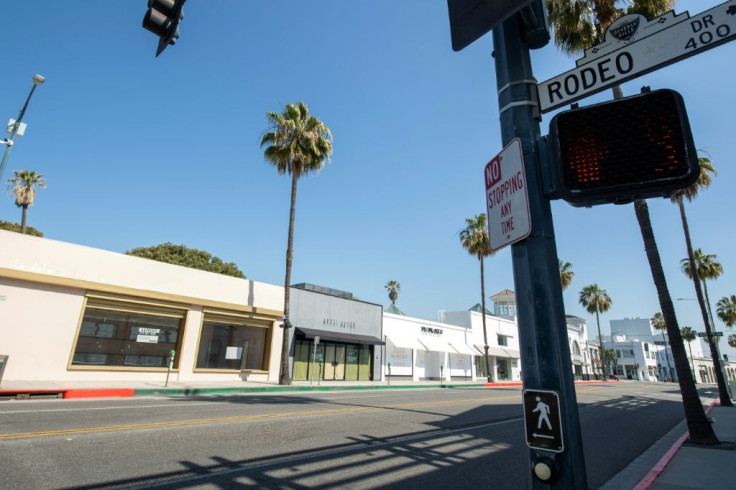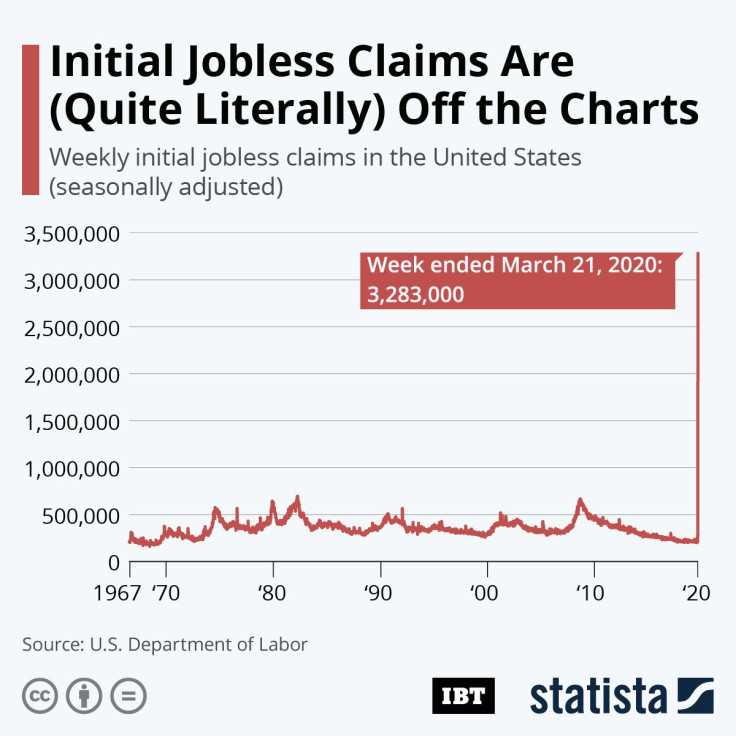Coronavirus Job Losses: No Sharp Recovery Guaranteed, Doubts Over Jobs Returning As Usual

KEY POINTS
- Post-COVID-19 economic recovery may not be as sharp as after the 2008-2009 recession
- A prolonged decline of the economy could affect job recovery for a long time
- Many jobs may never come back as the world changes the way it does business
While the U.S. has already lost to the new coronavirus pandemic as many jobs as during the 2008-2009 recession, the recovery may take much longer, reports suggest. The latest unemployment report showed a sharp rise to 9.9 million in applications for unemployment benefits.
The jobless claims rose to 6% of the workforce in March, from 3.5% in February.
Massive job loss
A Labor Department survey shows the pain may be only have begun and could get much worse, according to the non-profit media organization website www.npr.org. U.S. employers shed 701,000 jobs in March, the most since the Great Recession of 2009, according to the survey. The bulk of the data is from about three weeks ago, before the pandemic began to bite forcing widespread closure of restaurants, retail shops and other businesses, the report says.

The John Hopkins Dashboard for novel coronavirus shows the fatalities in the U.S. have risen to 7,150, with nearly 278,500 infections. The financial nerve center of New York City alone has seen 1,867 deaths, according to the website.
That widespread shutdown may have already pushed some 10 million people out of work, as the initial claims for unemployment filed in the past two weeks. The true picture may not be clear before the April employment report.
Reshaping the economy
Employers who have resisted cutting the workforce may soon succumb to the pressure soon, driving the unemployment rate through the roof, the New York Post said. The pandemic could reshape the economy permanently, unlike in 2008 when the recovery was fast, it pointed out.
Unlike sharp recessions that are followed by an equally sharp recovery, presenting a V-shaped graph, the economy may see a prolonged recovery, according to the New York Post.

Americans should brace for a long period of pain, as a swift recovery is unlikely, echoed a report on the CNN. This was because the real damage had just begun to emerge. In just the last two weeks of March, consumer confidence in the U.S. plunged to a 32-month low as large parts of the economy have shut off.
While most restaurants are closed, a large number of them may never reopen, the report pointed out. This was because businesses like restaurants are labor-intensive and low-margin ventures even when the economy is in a boom phase. A prolonged economic trough could kill them off easily. As the food delivery business is experiencing a pickup across the U.S., it may take longer for the customers to begin to trust the dine-in way of life.
The NPR report says the pandemic will further hasten digitization of jobs, reducing interpersonal interaction. Increased work from home and teleconferencing could be the natural way to do business in the future. If an overwhelming number of businesses continue this expedient way of working even in the post-pandemic world, this could impact jobs for transportation workers as commuter volumes fail to pick up. An indication of the future of doing business is in the booming stock price of Zoom (NASDAQ: ZM) whose popularity as a provider of home-working tools is skyrocketing. The stock closed at $128.20, up 5.14%, Friday on the Nasdaq, on a day the broader Nasdaq Composite shed 1.53% to close at 7,373.08.
Record streak of employment gains
Friday's jobs report is seen as a milestone because it snapped a record-long streak of employment gains starting from 2010 fall. The job losses are the worst since March 2009. The rise of the unemployment rate from 3.5% in February to 4.4% in March marks the sharpest increase since 1975.
“That will only be the tip of the iceberg,” the NPR report quoted Lydia Boussour, senior U.S. economist at Oxford Economics, as saying. “We think April will be really the month where you will see the full magnitude of that labor market collapse.” According to Boussour, the abrupt halt in economic activity across the U.S. is much like the experience of the Gulf Coast when Hurricane Katrina ravaged it.
According to Boussour, the U.S. could lose as many as 20 million jobs before the pandemic is brought under control and the country could witness the worst unemployment since World War II.
© Copyright IBTimes 2024. All rights reserved.



















